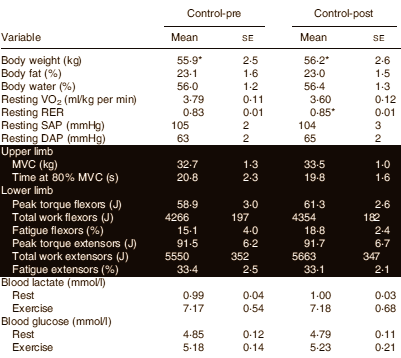Spikykite
Senior Member
- Feb 14, 2011
- 183
- 14
If women double their protein intake and reduce their carbohydrate intake, this doesn't make their muscles any weaker in the first week. But they do lose weight in that first week.
Greek sports scientists at Aristotelio University of Thessaloniki discovered this when they tested a high-protein diet on 10 active women aged between 24 and 40.
If athletes increase their protein intake, they often decrease the amount of carbs they eat. Most sports scientists have problems with this. Carbohydrates, they say, provide 'fast' fuel for the muscles. Eating less carbohydrate means that the muscles tire more quickly and perform less well. A disaster for athletes.
Real world experience tells another story. Most athletes don't notice a decline in their training if they eat more protein. What they do notice is that look more toned and their muscles recover more quickly.
So who's right? The scientists or the athletes? The researchers attempted to answer this question by setting up an experiment in which they gave women, who did not usually do weight training, an ‘ordinary' diet for a week [Control] and a high-protein diet [HP] for a week.
In terms of calories, the ratio of protein-carbohydrate-fat in the ordinary diet was 15:55:30, and in the high-protein diet 30:40:30. At the start [Pre] and end [Post] of each diet week the Greeks examined the women. The women also did intensive strength training sessions.


The changes led to considerable metabolic changes too. The women's respiratory exchange ratio [RER] changed. They burned more fat, and their oxygen consumption also increased. That meant that they burned more calories.
A theory that opponents of the high-protein diet often put forward is that people on high-protein diets often have a sharper body as a result of fluid loss. More protein means more urine, they say. But the Greeks found no reduction in fluid levels. What they did see was that the women's fat percentage went down.
The amount of work the women managed during the strength training sessions was slightly less after a week on the high-protein diet, but the difference was not statistically significant. The same was true for the muscle fatigue the women experienced during the training sessions.
"Women consuming an isoenergetic high-protein, moderate-fat diet, which resulted in body-weight reduction over a period of 1 week, maintained maximal strength and work capacity during resistance exercise without experiencing fatigue earlier compared with a control diet", the Greeks conclude.
Going by people's experiences on high-protein diets, it seems some athletes take a bit of time to get used to this kind of diet. They notice that they sometimes have a less successful training session, but that this disappears after a few weeks. If the protein blues become a problem, then it helps to increase the protein portion in small steps – and to reduce the carbs in small steps too.
Greek sports scientists at Aristotelio University of Thessaloniki discovered this when they tested a high-protein diet on 10 active women aged between 24 and 40.
If athletes increase their protein intake, they often decrease the amount of carbs they eat. Most sports scientists have problems with this. Carbohydrates, they say, provide 'fast' fuel for the muscles. Eating less carbohydrate means that the muscles tire more quickly and perform less well. A disaster for athletes.
Real world experience tells another story. Most athletes don't notice a decline in their training if they eat more protein. What they do notice is that look more toned and their muscles recover more quickly.
So who's right? The scientists or the athletes? The researchers attempted to answer this question by setting up an experiment in which they gave women, who did not usually do weight training, an ‘ordinary' diet for a week [Control] and a high-protein diet [HP] for a week.
In terms of calories, the ratio of protein-carbohydrate-fat in the ordinary diet was 15:55:30, and in the high-protein diet 30:40:30. At the start [Pre] and end [Post] of each diet week the Greeks examined the women. The women also did intensive strength training sessions.


The changes led to considerable metabolic changes too. The women's respiratory exchange ratio [RER] changed. They burned more fat, and their oxygen consumption also increased. That meant that they burned more calories.
A theory that opponents of the high-protein diet often put forward is that people on high-protein diets often have a sharper body as a result of fluid loss. More protein means more urine, they say. But the Greeks found no reduction in fluid levels. What they did see was that the women's fat percentage went down.
The amount of work the women managed during the strength training sessions was slightly less after a week on the high-protein diet, but the difference was not statistically significant. The same was true for the muscle fatigue the women experienced during the training sessions.
"Women consuming an isoenergetic high-protein, moderate-fat diet, which resulted in body-weight reduction over a period of 1 week, maintained maximal strength and work capacity during resistance exercise without experiencing fatigue earlier compared with a control diet", the Greeks conclude.
Going by people's experiences on high-protein diets, it seems some athletes take a bit of time to get used to this kind of diet. They notice that they sometimes have a less successful training session, but that this disappears after a few weeks. If the protein blues become a problem, then it helps to increase the protein portion in small steps – and to reduce the carbs in small steps too.
